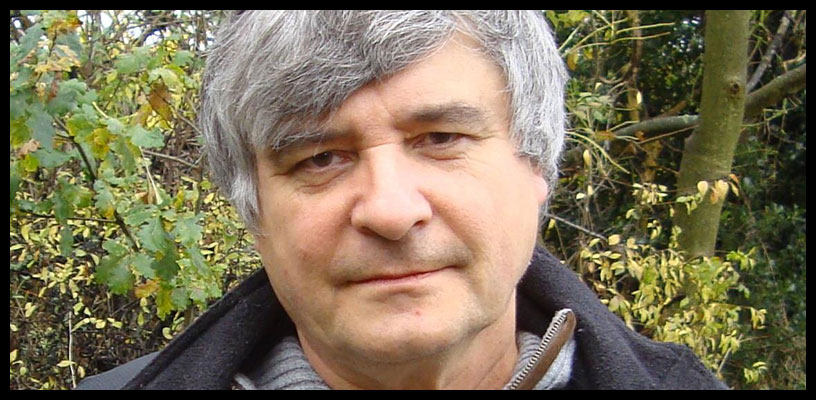Composer Dmitri Smirnov dies, aged 71

Boosey & Hawkes and Sirkorski are sad to announce the death of Dmitri Smirnov, the leading Soviet-born composer who emigrated to the UK in 1991.
The Russian-British composer Dmitri Smirnov died on 9 April in Watford at the age of 71 from the consequences of COVID-19. He is survived by his wife, the Russian-British composer Elena Firsova, and their children, composer and pianist Alissa Firsova and artist Philip Firsov.
Dmitri Smirnov [published by Sikorski] was born in Minsk in 1948 into a family of opera singers and spent most of his childhood in Frunse, the capital of the Kirghiz Republic. He studied at the Moscow Conservatory between 1967 and 1972 with Nikolai Sidelnikov, Edison Denisov and Yuri Kholopov. While still a student, Smirnov was in contact with Philipp Herschkowitz, an influential student of Berg and Webern living in Moscow, which deepened and expanded his knowledge of twelve-tone music without leading to his full adoption of dodecaphony in all its rigour. He worked as a music editor for Soveietski Kompositor between 1973 and 1980.
In 1976 Smirnov won first prize for a work at the International Harp Week in Maastricht and soon rose to prominence as one of the leading young modernist Russian composers of his generation. However, his unapproved participation in Western festivals of Soviet music led to his blacklisting by the Composers' Union under Tikhon Khrennikov in 1979, one of a group of seven composers including his wife Elena Firsova, Denisov and Gubaidulina. This effectively prevented Smirnov's music being performed on the radio and television, and prohibited the publication of his scores.
In 1981 he turned to full-time composition and was one of the founding members of the alternative New Association for Contemporary Music in Moscow in 1990. The political thaw in the late 1980s brought major performances for Smirnov in the West, including the premieres of three Blake-inspired works: his operas Tiriel at the Freiburg Stadttheater and The Lamentations of Thel at the Almeida Festival in London, and his first symphony 'The Seasons' at the Tanglewood Festival in the USA.
Following his emigration from Russia with his family in 1991, he established a new musical life in the UK - the homeland of his beloved William Blake and Shakespeare - working as a lecturer and freelance composer until his death. He held positions as composer in residence at St John's College Cambridge and Dartington and a visiting professorship at Keele University. He settled with his family in St Albans in 1998 and since 2003 taught at Goldsmiths College, University of London.
Through the influence of Denisov, Smirnov achieved a unique synthesis of serialism with an expressive Franco-Russian sensuality. The third formative ingredient was the poetry of William Blake, whose apocalyptic imagery and symbolism were not only the basis for his dramatic works, but also characterize Smirnow‘s vocal and chamber music compositions.
Major works by Dmitri Smirnov include the operas Tiriel (1983-85) and The Lamentations of Thel (1986), the Mozart-Variations for orchestra (1987), Jacob's Ladder for ensemble (1991), a cello concerto (1992), three violin concertos (1990/95/96), three symphonies (1980/82/95) and a Requiem (2006).
> Further information on Work: Mozart Variations
Photo: Elena Firsova
